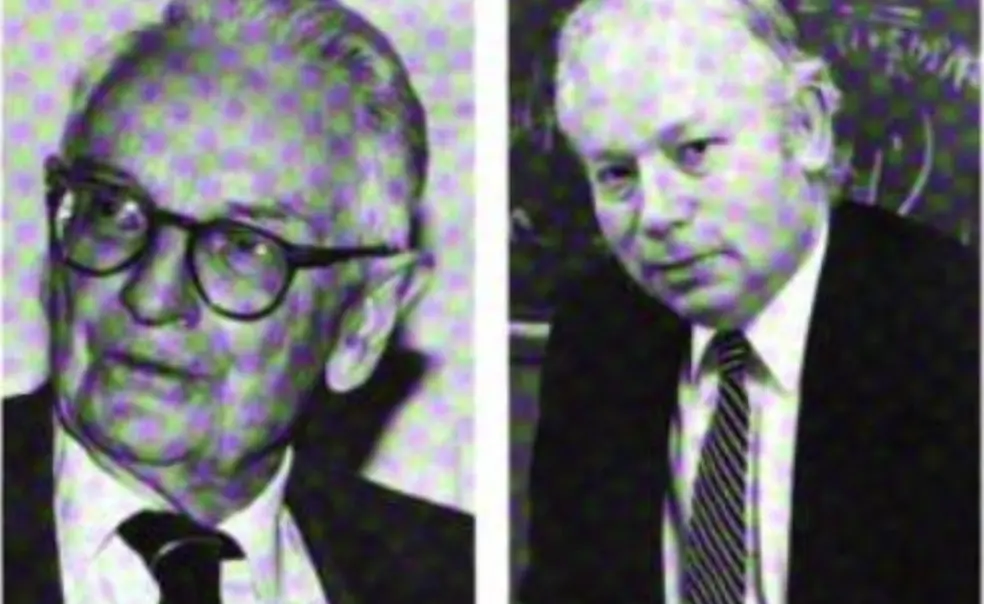Laurance Rockefeller ’32 and Steven Weinberg *57 Receive Alumni Day Award
Philanthropist Laurance S. Rockefeller ’32 and Nobel physicist Steven Weinberg *57 will be honored at the Alumni Day luncheon, on February 16, 1991, with the university’s most prestigious alumni awards. Rockefeller will receive the Woodrow Wilson Award, which is conferred annually on an undergraduate alumnus for distinguished contributions “in the nation’s service.” Weinberg will receive the James Madison Medal, which honors an outstanding alumnus of the Graduate School.
Following in his family’s philanthropic tradition, Rockefeller, a trustee emeritus of Princeton, has supported many causes and institutions concerned with medical research, higher education, and the environment. He has been a major donor to the Memorial Sloan-Kettering Cancer Center, and several of his donations to Princeton have helped the university attain key objectives. In 1969, his gift of $4 million for the construction of Spelman Halls (named for his grandmother Laura Spelman Rockefeller) was instrumental in Princeton’s decision to admit women as students. In 1983, a gift of $5 million funded the creation of Rockefeller College (named for his late brother John D. Rockefeller III ’29), one of the university’s five residential colleges for freshmen and sophomores. IN 1986, his gift of $10 million toward the construction of the Lewis Thomas ’33 Laboratory was critical to the university’s efforts to become a major center for research and teaching in the emerging field of molecular biology. Earlier this year, Rockefeller pledged $21 million to endow a center at Princeton for the study and teaching of human values (PAW, September 12, 1990). A former philosophy major himself, he called the creation of the Center for Human Values “the fulfillment of my Princeton education.”
Weinberg, a theoretical physicist, holds the Josey Regental Chair of Science at the University of Texas and is a member of that school’s physics and astronomy departments. He is the author of The First Three Minutes: A Modern View of the Origin of the Universe (1977), which has been translated into twenty foreign languages, Gravitation and Cosmology: Principles and Applications of the General Theory of Relativity (1972), The Discovery of Subatomic Particles (1982), and more than two hundred articles on elementary particle physics and cosmology. One such article is the most frequently cited physics paper of the last fifty years. In 1979, he shared the Nobel Prize in Physics with Abdus Salam and Sheldon L. Glashow for their work in unifying two of the four observed types of energy. Their efforts demonstrated that the weak force (a cause of radioactive decay) and electromagnetism were different manifestations of a single “electro-weak” force.
A native of New York City, Weinberg graduated from Cornell University in 1954 and attended the Copenhagen Institute for Theoretical Physics for one year before enrolling at Princeton. After receiving his doctorate in 1957, he taught at the University of California at Berkeley and then at the Massachusetts Institute of Technology. In 1973, he joined the faculty at Harvard, where he stayed for nine years before accepting his current appointment.
This was originally published in the December 19, 1990 issue of PAW.












No responses yet